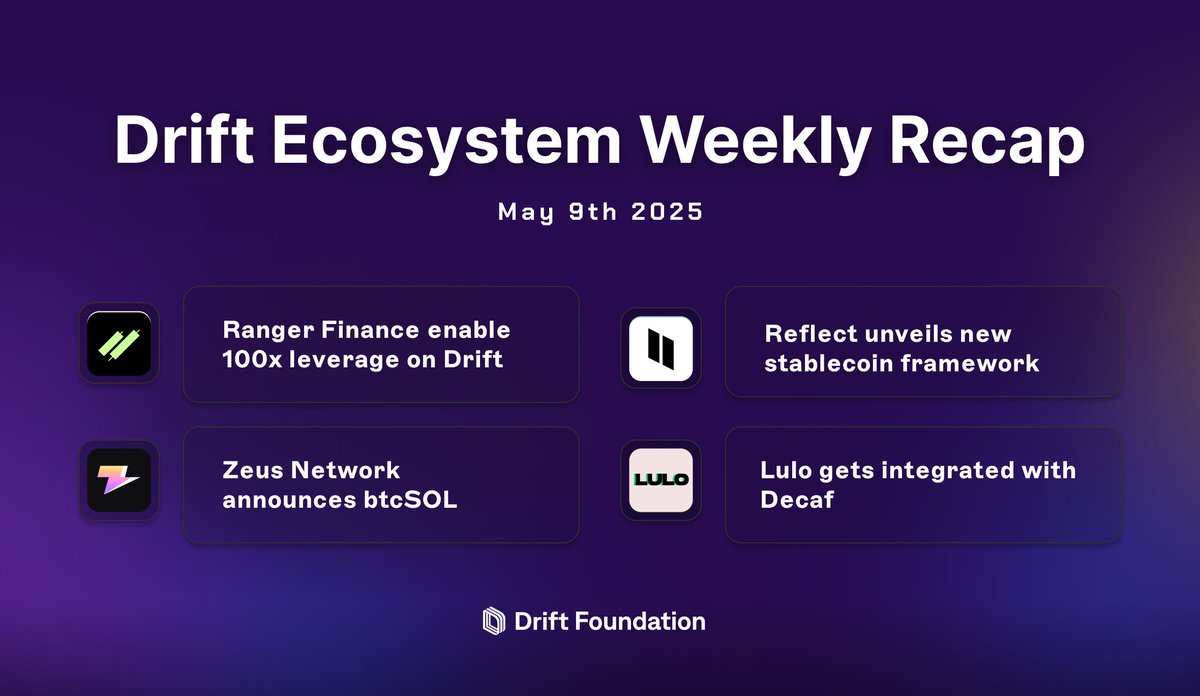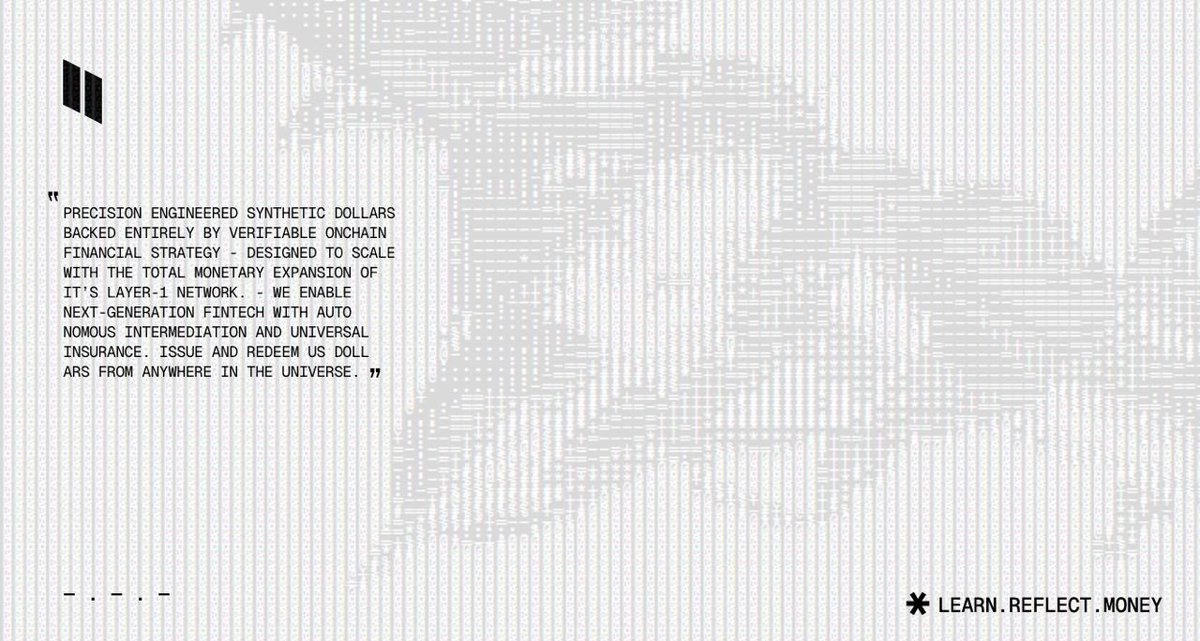DeFi on Drift keeps breaking new ground.
From BTC-yield staking to AI trading vaults, here are the top headlines this week 👇

1. @ZeusNetworkHQ announces the launch of btcSOL in 30 days
Zeus Network's btcSOL is the first BTC-yielding liquid staking token (LST) on Solana.
How it works:
- Stake SOL → Receive btcSOL
- Hold btcSOL → Earn BTC (as zBTC on Solana)
4. @reflectmoney unveils new stablecoin framework
Reflect is reimagining stablecoins as yield-generating assets, powered by delta-neutral and on-chain strategies.
Their vision is to:
- Tokenise the monetary layer
- Automate financial logic via smart contracts
- Build programmable, composable, on-chain money markets
What is Reflect Money?
You may have first heard about Reflect when it took home the grand prize at the Colosseum Radar Hackathon. The project began with a bold idea: to create a fully decentralised yield-generating stablecoin backed by a delta-neutral strategy.
But what started as an experiment in DeFi has quickly evolved into something far more ambitious.
More than just Stablecoins
From the beginning, even if we didn’t express it at first, Reflect’s vision extended beyond stablecoins or hedged trading strategies. At its core, Reflect has always been about something deeper: programmable money and the tokenization of the on-chain monetary expanse.
Tokenizing the Money Expanse
Imagine turning every expression of monetary value, whether it’s yield-bearing assets, cash-flow-generating protocols, or traditional financial instruments like Treasury bills, into tokens that live on-chain. Not just tokenized in name, but natively integrated into systems where settlement is instantaneous, composability is native, and the infrastructure is open.
This is what decentralized finance was always supposed to become; not just markets for borrowing and lending, but a new kind of financial infrastructure built on code, where trust is automated and rules are enforced without human bias.
Today, what we call “money markets” in DeFi, mostly isolated pools for lending and borrowing, are not foundational systems. They're primitive expressions.
The real innovation lies elsewhere: in programmable, on-chain intermediation.
Tokenized Intermediation
Tokenized Intermediation is the idea that the entire layer of financial logic traditionally handled by banks, brokers, and middlemen like pricing risk, allocating capital and distributing yield can be encoded into smart contracts.
It’s not about wrapping old systems in blockchain wrappers but it’s about building new ones from first principles. Systems where capital doesn’t flow through intermediaries, but through code and where liquidity, yield, and risk are not passively held but actively orchestrated by tokens that know what to do.
Because if DeFi replicates Wall Street but just replaces suits with pseudonyms, we’ve missed the point. The real promise of DeFi isn’t just moving faster or cheaper it’s automating the very logic of finance. No paperwork. No approvals. No intermediaries unless they’re written in code.
This is exactly the mission that drives Reflect: to reimagine how money is represented, moved, and programmed in a fully on-chain economy.
What guides us
We began by tokenizing the open interest of the SOL-USDC pair on Drift, a novel way to capture and package the yield potential of on-chain derivatives. But that was only the starting point.
Today, we’re building a broader framework: one that can mint and settle all types of on-chain yield as US dollars, instantly and programmatically.
In essence, we're building the bond market for everything: an open protocol layer where any form of yield, risk, or on-chain productivity can be represented as a token.
As more capital flows on-chain, the need for programmable money becomes more urgent. Crypto native investors aren’t just looking for capitally inefficient stablecoins, they’re looking for diversified, liquid, and risk-adjusted yield.
Reflect is building that foundation—so the next generation of money isn’t just stable. It’s productive by default.

12.3K
84
The content on this page is provided by third parties. Unless otherwise stated, OKX is not the author of the cited article(s) and does not claim any copyright in the materials. The content is provided for informational purposes only and does not represent the views of OKX. It is not intended to be an endorsement of any kind and should not be considered investment advice or a solicitation to buy or sell digital assets. To the extent generative AI is utilized to provide summaries or other information, such AI generated content may be inaccurate or inconsistent. Please read the linked article for more details and information. OKX is not responsible for content hosted on third party sites. Digital asset holdings, including stablecoins and NFTs, involve a high degree of risk and can fluctuate greatly. You should carefully consider whether trading or holding digital assets is suitable for you in light of your financial condition.



